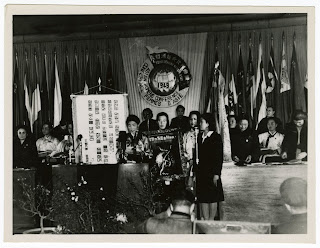Claiming the multilateral system as Righfully Ours! Reflections from the Global South Women’s Forum 2025 in Bangkok, Thailand.

The 10 th Global South Women’s Forum (GSWF 2025) convened by the International Women’s Rights Action Watch Asia Pacific , aimed to claim the multilateralism system as rightfully ours. As it functions currently, the multilateral system does not work for us, i.e. women of the Global South. Alma Rosa Colin Colin from Mexico and working with Equidad de Género: Ciudadanía, Trabajo y Familia , a participant at the GSWF 2025 observed that if we want a system that can break the relations that tie us to the dynamics of dependence, inequality and injustice, we must wonder if multilateralism ever worked for us. I would say that it hasn’t. I would go a step further and say that if one defines multilateralism as an alliance of countries pursuing a common goal based on principles of inclusivity, equality and cooperation to foster a more peaceful, prosperous and sustainable world, then the multilateral system as we know it didn’t just not work for us, it ...

